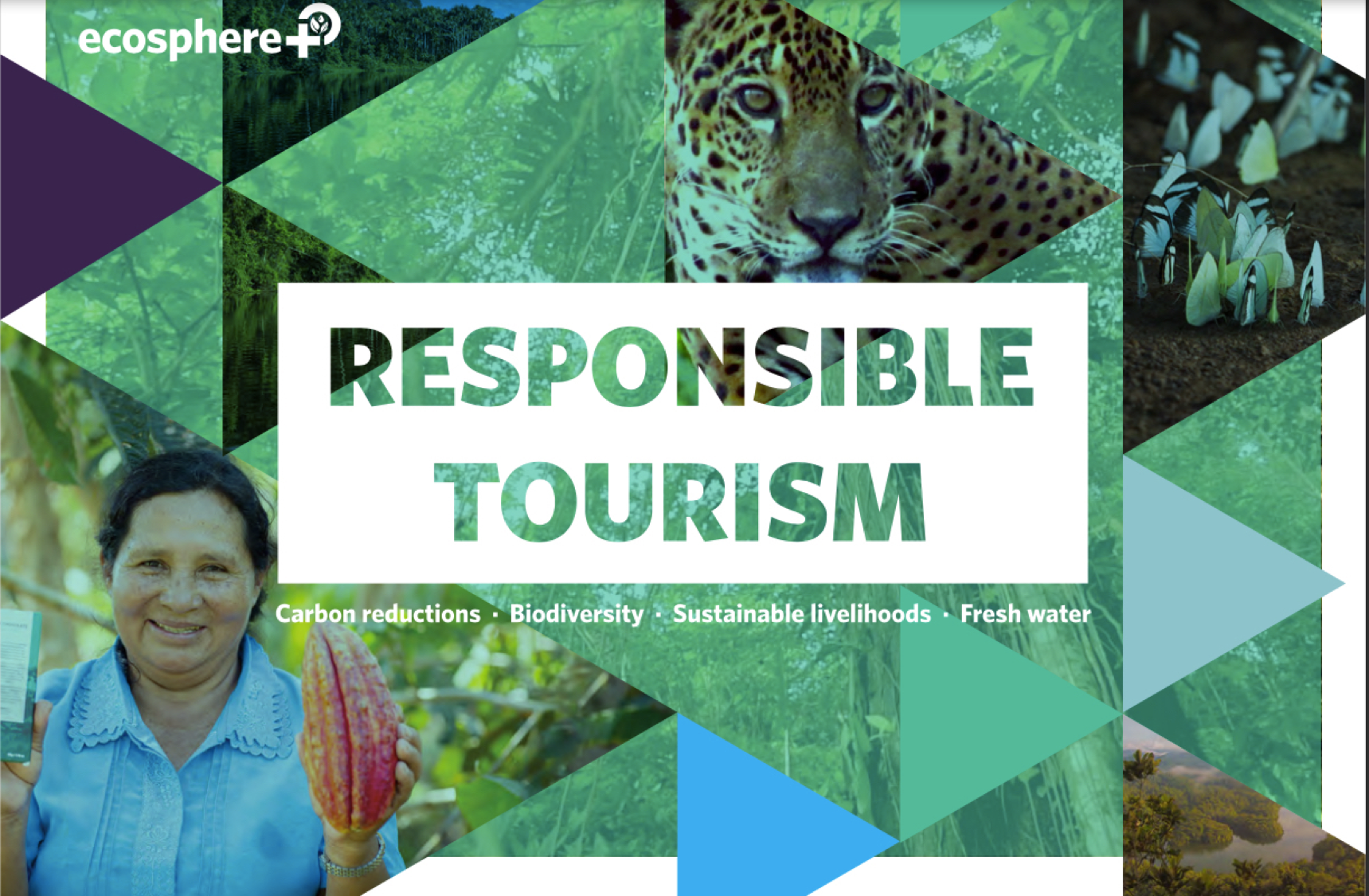This blog was originally written for the World Travel Market 2017 magazine.
Tourism relies on natural beauty, yet the climate change caused by human activity risks destroying it. Action is needed to protect the cultures, people and natural wonders on which tourism thrives. To invest now in sustainability is to invest in the future of the industry, whilst also ensuring future generations can enjoy the world’s most vibrant ecosystems and cultures.
Impacts of tourism
Tourism generates around 10% of global GDP and tourist numbers are expected to grow 3%-4% per year until 2030, adding 43 million international tourists every year; making sustainability measures in the industry even more critical. Recent trends indicate that ecotourism is the fastest growing area of the tourism industry, expanding by 20-34% every year, reflecting a shift in tourists’ interests.
Globally, the travel and tourism industry contributes about 5% of global carbon emissions each year, which in turn helps to drive the climatic changes that both directly and indirectly threaten the very nature and beauty on which the industry relies.
Regions disrupted by extreme weather; degradation of coral reefs and coastal areas; and the loss of habitat for animals and birds are all manifestations of our rapidly changing climate. The places most affected by these changes are often the regions that are most sought after by holidaymakers.
Awareness of these challenges is increasing – 2017 is the International Year for Sustainable Tourism for Responsible Development and many businesses are making commitments to manage their environmental impacts.
How can Ecosphere+ help?
One of the biggest actions the tourism sector can take to protect nature is to take control of carbon emissions and contribute to sustainable development. At Ecosphere+, we design solutions to help both travelers and businesses do this.
We protect forests and natural ecosystems around the world, which absorb carbon and help to reduce the levels of carbon emissions left in the atmosphere and are vital for sustainable development. We do this by selling and promoting “carbon credits”, which are a mechanism for companies and consumers to invest in rebalancing their carbon footprint by financing forest conservation projects.
The beautiful rainforests we help protect include well known biodiversity hotspots important for tourism, like the Guatemalan Caribbean coast and the Tambopata Biodiversity Reserve and Cordillera Azul National Parks in Peru which covers 3.7 million hectares of stunning landscape and sparkling blue lagoons.
How can we help you I hear you ask?
Consumers are progressively demanding better environmental performance and standards and are now more inclined to use businesses and companies with these better environmental credentials. The growth of eco-tourism around the world is proof of these changing consumer preferences. We help businesses accelerate their transition towards sustainability and sustainable development.
Balancing carbon emissions can be done in many ways. Some examples of our solutions include:
- Rental cars: Zero carbon rentals for less than 1p per mile
- Coaches: Green passengers for less than 4p per 100km
- Cruises: Green passengers at around 35p per 100km
Also, we connect people, nature and local cultures and believe responsible tourism should be a key sustainable economic activity; one that supports protected areas and communities. That is why we helped create ‘The Conservation Coast’; a network of ecotourism sites and ecological reserves throughout the Caribbean Region of Guatemala. With the right tour agencies, we want to promote this unique and spectacular destination.
World Travel Market
Here at Ecosphere+, we have recognised the significant impact that the growing travel and tourism market has on the environment. That is why we are attending the World Travel Market (WTM) in November to collaborate with some of the most influential and the most climate aware travel companies in the world. We are excited about working alongside travel and tourism companies to design creative solutions that enable these businesses to have a positive impact.
Case study – Promperu (the Peruvian Tourism and Export Promotion Board)
Promperu has decided to compensate the carbon footprint of the Peruvian delegation to the World Travel Market. The carbon emissions from the Peruvian delegation’s travel and accommodation has been balanced through protecting threatened forests in Peru. Thanks to Ecosphere+, the beautiful Cordillera Azul National Park in the Peruvian Amazon is being conserved through working with local communities. This rainforest generates clean air, fresh water and protects the habitat of endangered species. The compensated carbon footprint is 275 tonnes CO2, which is equivalent to taking 60 vehicles of the road for a year or protecting 27,500 trees.
Read more about our work with the tourism industry here.
